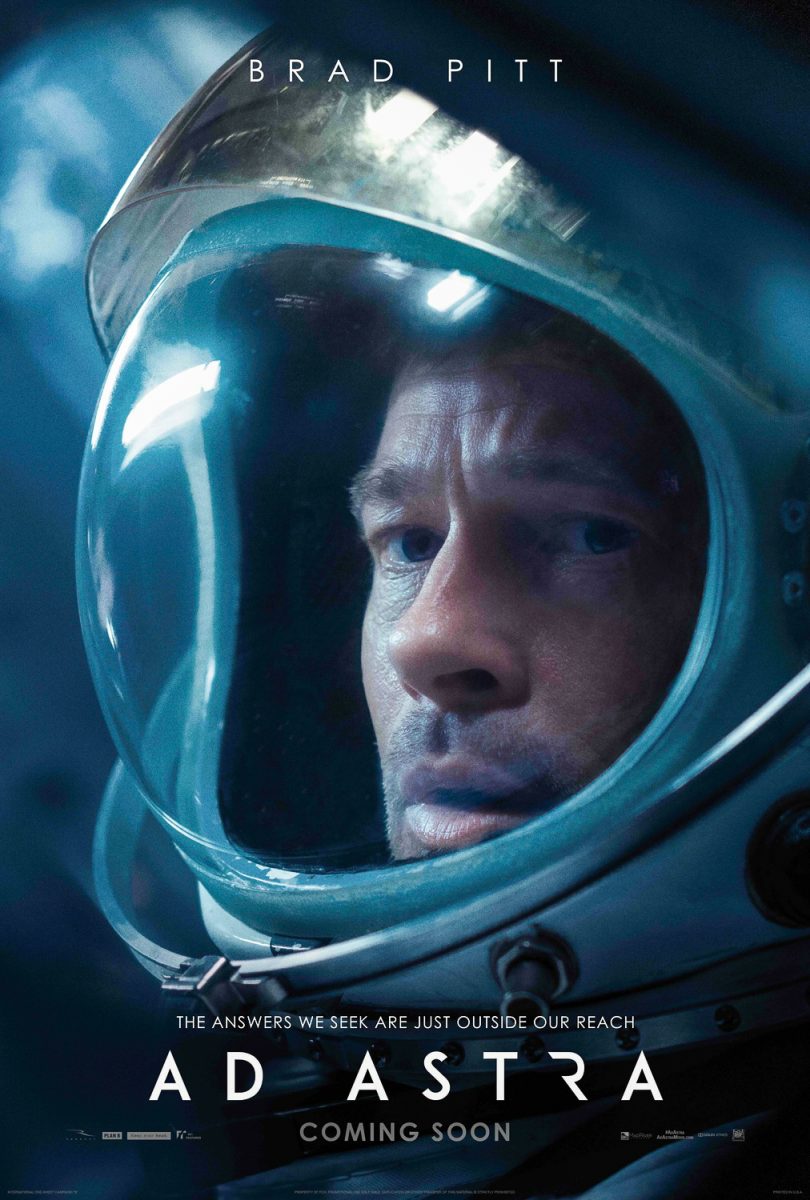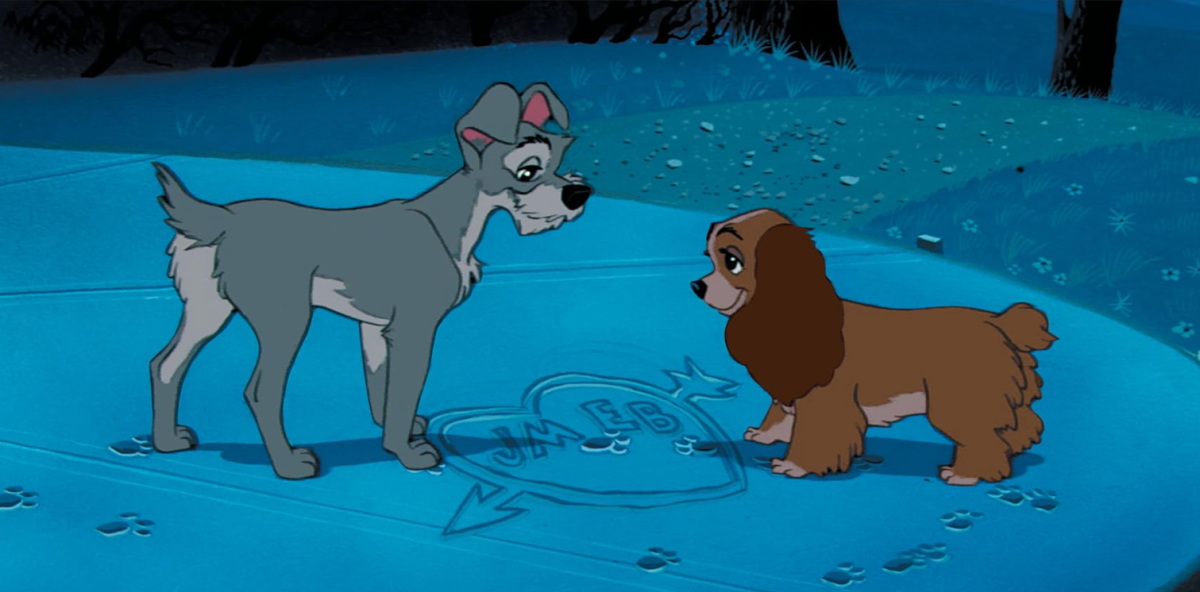Visually reminiscent of “2001,” “Interstellar” and “First Man,” “Ad Astra” tells the emotional story of a man and his father separated by a solar system. The film is a journey both physical and emotional for the main character, and it is told exquisitely. The plot revolves around Roy McBride, son of Clifford McBride, the most decorated astronaut in history. Clifford was sent into space decades before on a mission to the edge of the solar system, but he was lost and presumed dead when communications stopped. When mysterious disruptions on Earth are linked to Clifford’s spaceship, Roy embarks on a mission to make contact with his long-lost father, both for the sake of humanity and for himself.
The film tells an extremely personalized and focused story over the looming backdrop of the infinite cosmos. The film uses each new stop along Roy’s journey, first a base on the Moon, then a distant outpost on Mars, to change him, as is evident through the slightly overused voice-overs present throughout the film. In addition to stellar character development, the shopping mall-style tourist destination on the Moon and the pervasive orange tint of the desolate Martian outpost contribute greatly to an intricate, near-future world. From the subtly sinister undertones of Space Com, the world’s seemingly global space agency, to the mysterious psychological evaluations that Roy has to undertake quite frequently, the world is thorough — perhaps to an even greater degree than “2001.”
From a thematic perspective, the film is utterly brilliant. It teaches a somewhat cliché lesson that the joys of family and friendship are greater than anything you could find in a career or in space, but it does so in such a magnificent way that the almost worn out theme rings fresh in your mind by the time the credits roll. The movie starts on Earth, or high above it. Then, when Roy is dispatched on his mission, he embarks for the Moon, a waypoint on his further journey to Mars.
Director James Gray did an excellent job of making each of Roy’s stops a little more lonely, a little more abandoned and empty. The Moon base is a mall with Space Com facilities attached, and as the characters walk through, it becomes apparent that it’s nearly empty. The novelty of space travel has worn off for the public, and Roy and Clifford stand alone in their continued awe of and dedication to the stars. This solitude becomes more pronounced on Roy’s journey to Mars, as Roy and the meager crew of his ship encounter an empty ship broadcasting a distress signal.
On Mars, the isolation is heightened further, with only a few characters shown and the orange tint of the red planet reminding viewers of a vast and unforgiving desert far from any civilization. Add to that the uncomfortable and jail cell-like quality of the base’s “comfort rooms,” and the Martian scenes become truly singular, focused to an uncomfortable degree on Roy, who, by design, is played as very emotionally reserved and closed off by the ever-eminent Brad Pitt. This focus and isolation is all by design and works extremely well to convey the theme at the end of the film.
The acting itself was phenomenal. This film delivered a better version of director Damian Chazelle’s “First Man,” Brad Pitt’s Roy a better written and better performed futuristic version of Ryan Gosling’s Neil Armstrong. Both were equally closed off, but Pitt had more to say in his silence. In his handful of minutes onscreen, Tommy Lee Jones was also brilliant. He played unhinged, obsessed and dangerous very well, his character seen most frequently through recorded video transmissions with a frightening look in his eyes and conspicuous weary bags below them.
The film’s only flaw is the occasional action sequences to “spice up” the narrative. There was the occasional laser gunfight and the occasional zero-gravity brawl. And while each of these brief scenes, of which there are only three, are very well-done, they seem out of place in an otherwise realistic space drama.
In short, “Ad Astra” is incredible. It tells the very personal story of two lost astronauts as they find their way back to each other. It tells the story of family and the infinite vastness of human interaction in a fresh and novel way. It builds an intricate world that could rival that of “2001.” And it does all of this through a wonderfully paced, beautifully shot space odyssey that really hits home its messages in spectacular fashion. “Ad Astra” is a sprawling film. It has massive scale, narrative and characters, and it manages them all beautifully.
‘Ad Astra’ is a stellar film
September 30, 2019
Photo by Creative Commons
Ad Astra
0
Donate to The Battalion
$1815
$5000
Contributed
Our Goal
Your donation will support the student journalists of Texas A&M University - College Station. Your contribution will allow us to purchase equipment and cover our annual website hosting costs, in addition to paying freelance staffers for their work, travel costs for coverage and more!
More to Discover
















